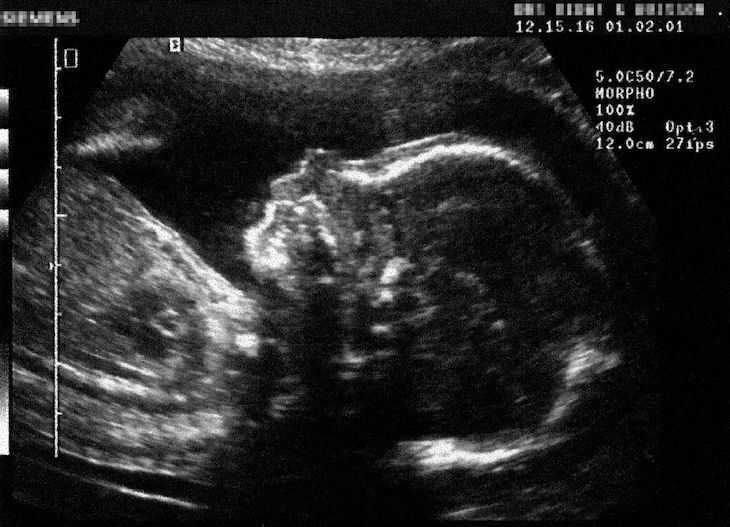Since Tory MP Richard Holden called for first-cousin marriage to be banned in the UK earlier this month, few people have been prepared to speak in favour of the practice. While not unheard of among white British families, cousin marriage is rare and viewed as rather odd. So, when writer Charles Amos agreed to speak to GB News in defence of such relationships, we welcomed the opportunity for debate.
The interview with Andrew Pierce and myself took an unexpected turn when, having argued against a ban on cousin marriage on the grounds that the state should not interfere in such matters, I asked Amos if this view extended to sibling marriage. He replied that it did, and expanded on his answer to imply that even sexual relationships between fathers and daughters should not necessarily be off-limits.
'Individuals should be free to marry and have children with whoever they want…'
Writer, Charles Amos, joins GB News to describe why he believes individuals should be free to form a relationship with anyone, including incestuous relationships with cousins or siblings. pic.twitter.com/vxXv7Xnfli
— GB News (@GBNEWS) December 19, 2024
This answer precipitated a Twitter pile-on, to which Amos responded articulately in The Spectator. While I deeply regret the online abuse, I’m grateful for this opportunity to explain why I believe Amos is wrong.
But first a point of agreement. Like Amos, I don’t believe cousin marriage is always immoral. First-cousin marriage increases the risk of birth defects but, as Amos points out, we do not ban other risky conceptions, such as those in women over 40. But in terms of justifying state intervention, it has become a question of scale. Generations of inbreeding in some communities has greatly increased the rate of serious deformities, a situation that is both tragic and increasingly costly to the taxpayer. This is no longer a private issue but a societal one.
Like Amos, I don’t believe cousin marriage is always immoral
Amos does not only oppose bans on cousin and sibling relationships on the basis of government overreach. He also defends the existence of the children conceived in this way, saying that in prohibiting incest “the sperm and egg will never meet. That life would never exist”. This is an odd argument to make. Once a child has been conceived, he or she is as fully human and valuable as any other, regardless of the circumstances of conception. But to object to the prohibition of incest on the grounds that it prevents potential lives from existing is to condemn any action or inaction that might avert a future conception, such as the use of contraception, celibacy or even the prevention of rape. It is difficult to make the case for the rights of a hypothetical child who does not – and may never – exist.
Amos argues that widespread disgust at the idea of close-family incest is a biological reaction, not a moral one. The visceral online response to Amos’ views on sibling and father-daughter sex certainly has a strong instinctive element. But the higher risk of birth defects is not the primary reason why close family incest is morally wrong. Western law and ethics have their foundations in the Old Testament, where God expressly forbids incestuous sex, including between stepparents and stepchildren where there is no blood relationship.
The purpose of this prohibition cannot, therefore, be solely to prevent birth abnormalities; rather, I believe, it is to shield women and children from sexual abuse. For obvious reasons, women and children must be protected from predatory males who seek to use them for sexual gratification. Societies have developed laws and conventions (such as single-sex provisions) to limit opportunities for rape and sexual assault. But in private family homes, it is principally the role of older members of the household – especially males – to protect women and children from unwanted sexual advances. If it is socially acceptable for fathers and brothers to see their daughters, stepdaughters and sisters as legitimate sexual partners then how, and where, can women and children ever be safe?
The contemporary liberal idea that sexual morality can be reduced to the presence or absence of ‘consent’ is inadequate in the context of the close family. Family relationships are given and hierarchical not consensual and equal. No child ‘consents’ to being told to go to bed or eat their greens by a parent or older sibling. Neither can he or she meaningfully ‘consent’ to sexual activity with a more senior member of the family. This may not always apply to more distant, non-household blood relationships such as second cousins. But parent-child or sibling incest is by its very nature abusive, undermining the protective integrity of the family.
This is why Amos is wrong to argue that opposing incest is morally equivalent to supporting eugenics because, as he sees it, both positions imply that ‘healthy’ people are to be valued over ‘unhealthy’ ones. But one can be both opposed to incest – on the grounds that it is incompatible with children’s welfare – and opposed to eugenics, because any attempt to ‘optimise’ foetal traits is a slippery slope to devaluing the lives of disabled people.
When both our biological and moral inheritance tell us so strongly that something is abhorrent, we should heed the warning. Taboos around incest are there for a reason.







Comments